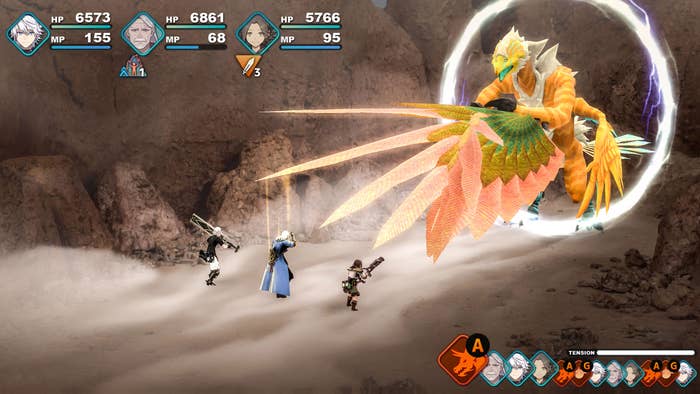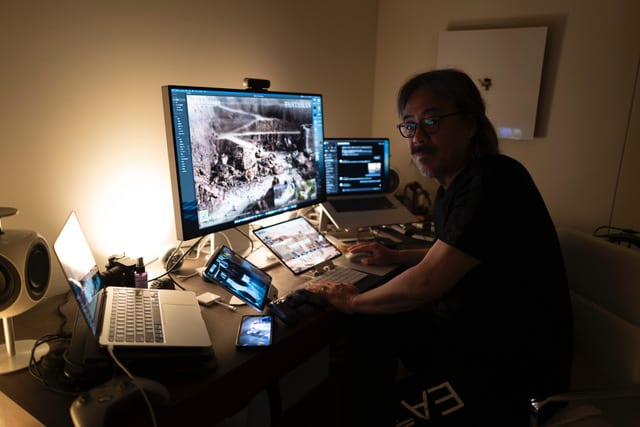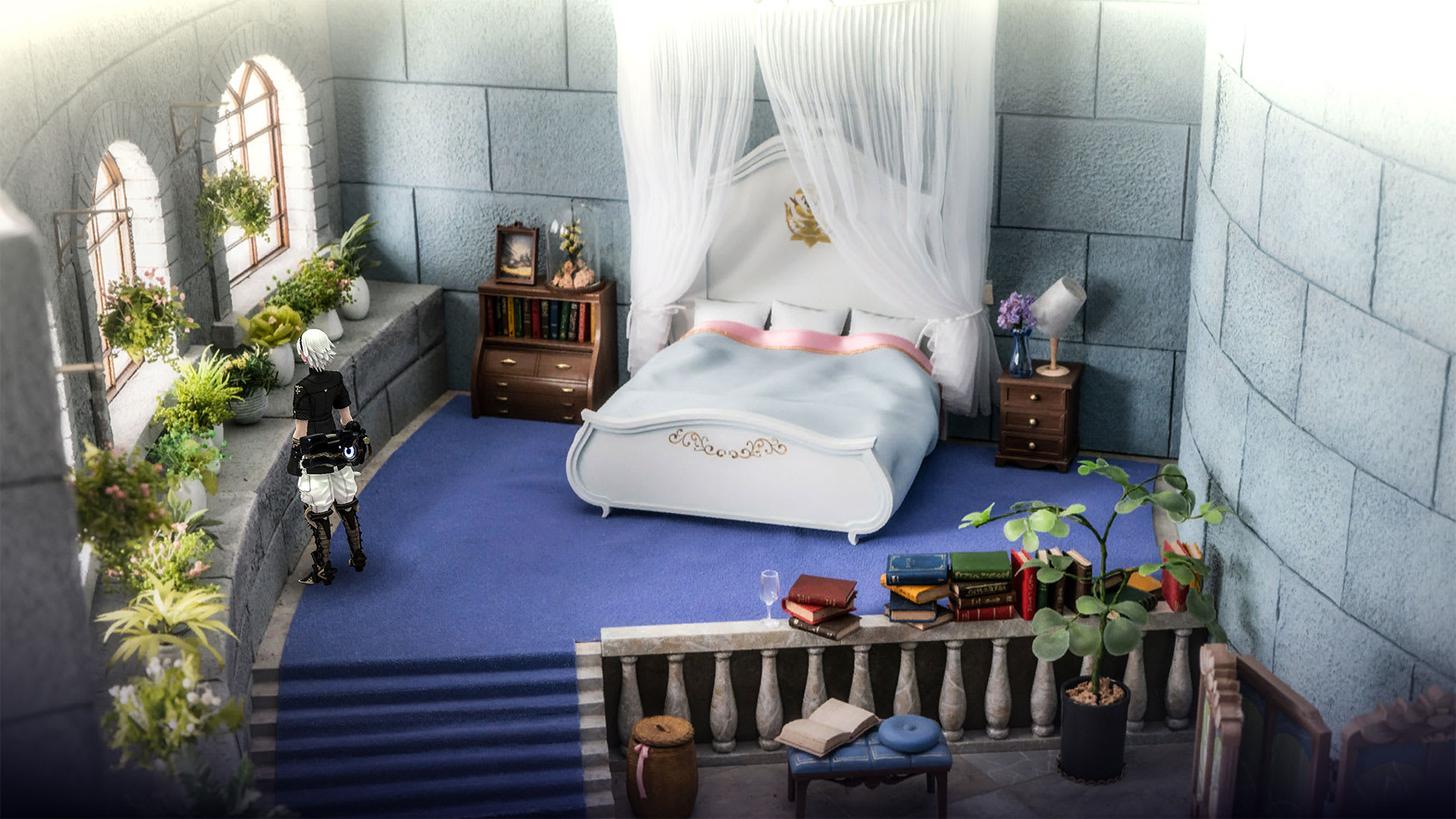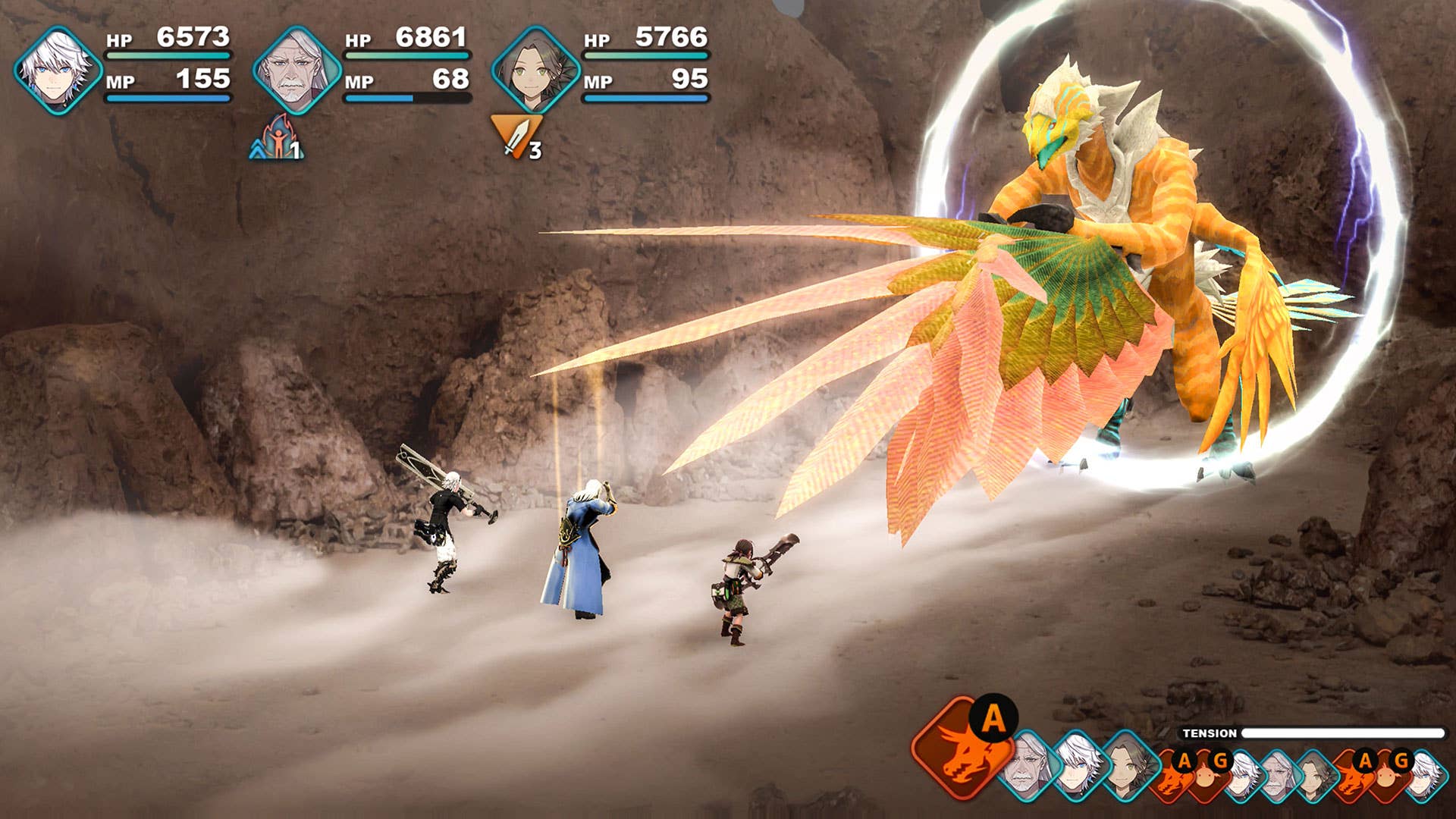
In the world of video games, Hironobu Sakaguchi is a legend. The Japanese game designer, director, and producer is responsible for creating a handful of the most famous and acclaimed video games of all time, including the immortal classics Chrono Trigger and Final Fantasy. His work on the first six Final Fantasy games, in particular, has been so widely imitated that he is arguably among the most influential designers of the 2D console era. A revered elder statesman of the medium, his place in the annals of gaming history is absolutely secure.
Hironobu-san left Square Enix and Final Fantasy behind in the early 2000s, and over the course of the past decade, he’s been mainly working on mobile games in Japan. But this year, he’s returning at last to the genre that made him famous, bringing his classic touch to a throwback 2D RPG title called Fantasian. Inspired by many of the retro games that built his reputation, Fantasian will be instantly familiar to fans of the early Final Fantasy titles. The game surprise dropped last week across Apple’s mobile platforms, including iPhone and iPad, as part of Apple Arcade.
We caught up with Hironobu-san by Zoom in Honolulu to look back at his career highlights, his inspirations and interests in modern gaming, and his one-time foray into directing movies.
What inspired you to go back to your roots and make a throwback RPG with Fantasian?
About three years ago I had the opportunity to play Final Fantasy 6 with my old colleagues, the people I made the game with, and it really reminded me of how much I enjoyed this genre, and how much I would like to make another game like that.
How much in the game will be familiar to classic RPG fans? How much is new?
It has everything you would expect from a traditional RPG—traveling to different towns, talking to NPCs to get information, then going into different dungeons, having random encounters, turn-based combat, and so on. But in the spirit of innovation we had, we wanted to introduce some new mechanics as well. There are two I would like to highlight specifically: the first is the diorama look, and the second has to do with the battle mechanics. First, on the topic of dioramas, all the environments are hand-crafted dioramas. Because all of our environments are dioramas, it took over 150 artisans to create the over 150 environments we have in the game. We start off with concept art, which then gets turned into various props which go into the dioramas.
What about the battle mechanics?
There are two new mechanics. The first is the aiming mechanic: you can either fire in a straight line or some spells can actually be curved or arched. The other one is called the “dimengeon” system, a combination of “dimension” and “dungeon,” which allows players to take random encounters and bank them for later by putting them in a different dimension. In dimengeon battles there are various power-ups that can help the battle. It’s been balanced and tuned in such a way that it’s very satisfying to take on these enemies all at once. In comparison the boss battles and encounters have more strategy required.
“Let’s be honest: I am in the latter chapters of my game development career. I wanted to return to my roots in a way, and do something I enjoy that I am really good at.”
When you first created Final Fantasy, what were your main inspirations? Were you influenced by pen and paper RPGs like Dungeons and Dragons?
I’m sure there was some degree of influence that Dungeons and Dragons had on early Final Fantasy games. But at that point I had already been playing games like Wizard or Ultima on my Apple 2 computer. That had a larger influence on me than pen and paper RPGs. But over the years Final Fantasy has evolved, of course, even between Final Fantasy I and Final Fantasy VI. Fantasian taps into those games as using that as its base and then bringing it into a more modern era.
Why do you think games like Final Fantasy IV continue to be so popular, even decades later, when the technology is so out of date?
One reason it endures the test of time is the story. This is not something that is unique to games by any means. A really good story doesn’t age. It has the power to move people. The other thing is the rapid development of computer technology. Once you take a game into a 3D space, it takes on a different way that players engage with it. In the 2D era, those games had an innate sense of accomplishment when you explore it from corner to corner. The ability to explore every corner and every element of a game, we’ve lost that in the 3D era. It seemed conceivable to be able to explore every corner at that time. You can walk to the back of an alley and sure enough you will be rewarded with a treasure chest. That sense of discovery keeps people coming back.

I know you love that classic era. But are there things about modern triple-A blockbuster games that impress you?
Of course. And I think a lot of the visual expression and how much we’ve pushed the boundaries is fascinating. Take the Final Fantasy VII remake for example, which was recently released. What they’ve done with the visuals, and allowing players to control those characters in that way, is phenomenal.
Obviously a lot of people have nostalgia for the games they grew up with. Would you say Fantasian is an attempt to channel that nostalgia, to capture that spirit of fondness people have for the old games?
I don’t know how intentional I would say it was. But really, going back to those more classical RPGs that you talk about—looking back at my career, that’s really what I excelled in. Let’s be honest: I am in the latter chapters of my game development career. I wanted to return to my roots in a way, and do something I enjoy that I am really good at. Combining that with more tools we have today, bringing in some of the technological advancements we have, that’s what I set out to make.

I know mobile gaming is more popular in Japan, but in North America, mobile games have a reputation as a bit cheap or simple. Why did you choose to make such an elaborate game on Apple Arcade, as opposed to a console?
Very early on in this game’s development I was speaking with two of my friends who work at Apple and they were, at the time, just getting Apple Arcade off the ground. We talked about making a game on the same scale as a console game, something that really could line up neck to neck with a console game. I didn’t think about this game having to reshape itself for a mobile platform or to be a sort of compromise. When I play Fantasian, I put it on my Mac, turn the resolution all the way up to 4K, and plug in a controller. It really feels like a console game. We made sure that all the elements would withstand 4K resolution. Because it’s on Apple Arcade we integrated iCloud into it, so you can switch from the phone to the big screen.
Lastly, I wanted to ask about the feature film you directed—Final Fantasy: The Spirits Within.
Oh. [Laughs and puts his head in his hands.]
That was a hugely ambitious movie that was way ahead of its time. How do you feel about it now, 20 years later?
Looking back, The Spirits Within was an absolutely insane project for the time. It was a real uphill battle in so many ways. What I feel now is… the courage that I needed to push through and to create a project like that. I don’t mean to compliment myself here, but as I age it reminds me that we can’t lose that spirit of pushing through and fighting back against the status quo. Similarly with Fantasian, I felt once more that I wanted to create a full-scale console game. For the past ten years I have been focused more on the mobile space, and so it was a challenge to create something like this. So I would say, if I have to comment on the film now, looking back it’s important for me not to forget that courage and that spirit of challenging something.


